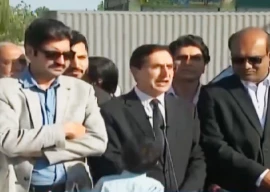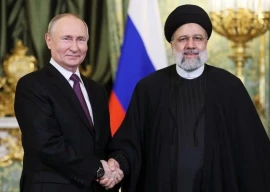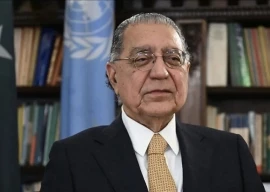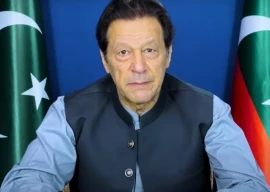
ISLAMABAD: Sharing almost everything from resources to culture, there is more in common than to be wary off between India and Pakistan.
These views were expressed by Professor Prakash Tiwari who works with the Department of Geography at Kumaun University Nainital, Uttarakhand, India and was here a few days ago to attend the three-day national conference on peace and sustainable development, organised by the Sustainable Development Policy Institute (SDPI) Islamabad.
In an exclusive chat with The Express Tribune, Tiwari said it was only certain vested interests which were creating trouble between the two countries.
Referring to the ecosystem services that India and Pakistan share besides common culture, Tiwari said the people of India and Pakistan simply wanted peace and stability.
“People on both sides of the border are not interested in war and violence. It is only a certain vested political interest that is not allowing the two countries to establish sustainable peace,” he added.
A geography professor and a lover of mountains, Tiwari stressed increased communication between the countries. “We need more people-to-people contact in order to remove misconceptions that unfortunately prevail on both sides,” he said. He added, however, that “a realisation of this is already there.”
“You watch Shahrukh Khan and Katrina Kaif movies here in Pakistan. Don’t you? Isn’t this contact? This contact is called virtual contact. It has already been happening for a while,” said Tiwari.
Referring to the big screen that connects people of the two countries, he said, “A time will come when we will not need screens to communicate with each other.”
But amid tensions that follow every mishap, like the 26/11 Mumbai attacks, depicting the incumbent mistrust between the two nuclear powers of South Asia, Tiwari’s suggestion seems a farfetched possibility.
The professor added, “Extremism and fundamentalism are not new to the world. They have been present in all religions and nations of the earth. In India’s case, it is a minority consisting of Rashtriya Swayamsevak Sangh (RSS) and the Bharatya Janata Party (BJP) that are repeatedly criticised by the media for their fundamentalism.”
The professor said that in a globalising economy, if India and Pakistan wanted to progress with the world and alleviate poverty, they needed to cooperate with each other.
“Take China, for example, which managed its conflicts for economic stability and did not hold back in establishing long-term trade relations with India despite their border tensions,” said Tiwari.
“I suggest we allow traders and people from other walks of life from both sides to establish contacts through personal visits. This would not only remove misunderstandings, it would pave the way for a long-term relationship between the two neighbours,” he added.
The geography professor was confident that a greater realisation for establishing sustainable peace between the nuclear neighbours was present in the public at large, except for a minority with vested interests.
When asked why there was no breakthrough in resuming Confidence Building Measures between two countries despite efforts in this regard, the professor replied, “For this, people on both sides of the border need to put confidence in their respective governments. On the Indian side, I can say people rely on their government to a great extent.”
Published in The Express Tribune, December 30th, 2010.
















1713281138-0/US-Treasury-Secretary-Janet-Yellen-(2)1713281138-0-270x192.webp)

























COMMENTS
Comments are moderated and generally will be posted if they are on-topic and not abusive.
For more information, please see our Comments FAQ